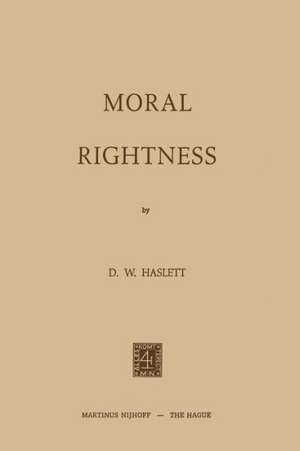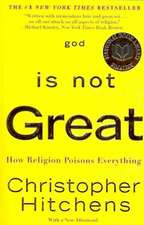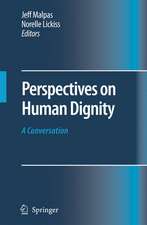Moral Rightness
Autor David Hasletten Limba Engleză Paperback – 1975
Preț: 382.75 lei
Nou
Puncte Express: 574
Preț estimativ în valută:
73.25€ • 76.04$ • 61.08£
73.25€ • 76.04$ • 61.08£
Carte tipărită la comandă
Livrare economică 22 martie-05 aprilie
Preluare comenzi: 021 569.72.76
Specificații
ISBN-13: 9789024716272
ISBN-10: 9024716276
Pagini: 204
Ilustrații: VIII, 192 p.
Dimensiuni: 155 x 235 x 11 mm
Greutate: 0.29 kg
Ediția:1974
Editura: SPRINGER NETHERLANDS
Colecția Springer
Locul publicării:Dordrecht, Netherlands
ISBN-10: 9024716276
Pagini: 204
Ilustrații: VIII, 192 p.
Dimensiuni: 155 x 235 x 11 mm
Greutate: 0.29 kg
Ediția:1974
Editura: SPRINGER NETHERLANDS
Colecția Springer
Locul publicării:Dordrecht, Netherlands
Public țintă
ResearchCuprins
I. Confirming Answers to Moral Questions.- 1. Introduction.- 2. The Right and the Good According to Lewis.- 3. Evaluative Sentences Analyzed.- 4. Ambiguities in Moral Questions.- II. Toward an Approach to Ethical Justification.- 5. Lewis’ Approach to Ethical Justification.- 6. Rationality as More Than Consistency.- 7. An Initial Look at Another Approach.- 8. What is Intrinsically Good and Why: The Outline of an Argument.- 9. Justification and Morality Enforcement.- III. The Fundamental Imperative of Rationality.- 10. Absolute, Objective, and Subjective Rationality.- 11. The Ideal Observer Standpoint.- 12. Rationality Where Probabilities Differ.- 13. The Rationale.- 14. Rationality, Prudential Goodness, and an Alleged Paradox.- IV. The Maximum Social Goodness Imperative.- 15. The Golden Rule.- 16. “Social Goodness” Defined.- 17. What Counts as an Act.- 18. The General Use.- 19. The General Use as Morally Fundamental.- V. The Ideal Observer Moral Code.- 20. The Ideal Observer Criterion.- 21. The Need for Simplicity, Ease of Application, and Uniformity.- 22. Exceptions to the Rules.- 23. Borderline Cases.- 24. Conflicting Rules.- 25. A Comparison with Classical Utilitarianism.- 26. A Comparison with the “Ideal Moral Code” Criterion.- VI. The Plausibility of Justification.- 27. A Foreword on Justice.- 28. The Ideal Observer Moral Code vs. a Discriminatory Moral Code.- 29. Final Formulation of the Approach to Justification.- 30. Conclusion.- Works Referred To.














